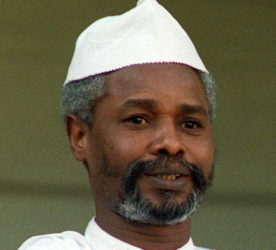Benin steps up security in face of militant threat
COTONOU (Reuters) – Benin stepped up security patrols and roadblocks and increased border security yesterday in the face of a threat from Islamist militants, the army chief of staff and a senior security official said.
A statement by the army chief of staff gave no details of the threat.
West African countries are increasingly concerned about al Qaeda in the Islamic Maghreb and its allies. The groups have expanded a campaign in northern Mali in the last year to stage high profile attacks in Mali, Burkina Faso and Ivory Coast.
At the same time, Islamist militant group Boko Haram, which is based in the northeast of Benin’s eastern neighbour Nigeria, has killed thousands in an insurgency that began in 2009. It has also launched deadly attacks in Niger, Cameroon and Chad.
Italy’s coast guard says over 1,300 migrants rescued at sea
MILAN (Reuters) – Italy’s coast guard said yesterday it had picked up at sea 1,348 migrants in 11 rescue operations between Sicily and North Africa, bringing the total number of people saved over the past three days to more than 3,000.
Two thousand people were rescued on Thursday when the coast guard coordinated operations involving migrants travelling on 15 different boats.
Italy is on the front line of Europe’s immigration crisis, which is now in its third year. Almost 50,000 migrants have come ashore in Italy this year, about 10 per cent less than the same period last year, according to the Interior Ministry.
Chad’s former leader Habre appeals conviction for atrocities
DAKAR (Reuters) – Chad’s former ruler Hissene Habre has appealed against his conviction for crimes against humanity and war crimes, a spokesman for the Special African Chamber that conducted his trial in Senegal said yesterday.

Habre, 73, an ally of the West during the Cold War, was sentenced on May 30 to life in prison for rape and ordering the killing and torture of thousands of political opponents during his eight-year rule.
“The lawyer’s commission have submitted the paperwork for Habre’s appeal,” said Marcel Mendy, a spokesman for the Chamber, a tribunal created in 2013 by Senegal and the African Union for human rights crimes committed during Habre’s rule.
New judges will be appointed and the appeal will take at least seven months with no start date set, Mendy said.
So far, the court has only tried Habre and the case marks a milestone for African justice. It is the first time in modern history that one country’s domestic courts have prosecuted the former leader of another country on rights charges. Other such cases have been tried by international tribunals.
The verdict capped a 16-year battle by victims and rights campaigners to bring the former strong man to justice in Senegal, where he fled after being ousted in a 1990 coup.





